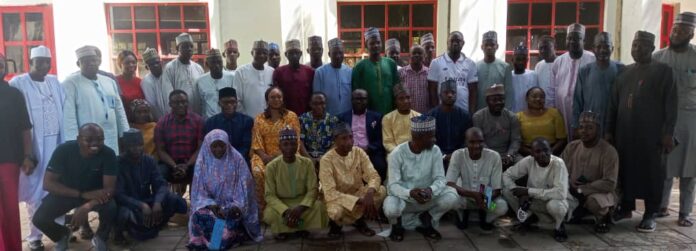The Society for Water and Sanitation (NEWSAN) has called for stronger political commitment and increased funding to improve response and prevention efforts against cholera outbreaks across the country.
The National Coordinator of NEWSAN, Mr Attah Benson, made the call during a three-day training workshop on Case Area Targeted Intervention (CATI) for Sokoto and Zamfara States.
The Newsmen reports that the training was organised by the Federal Ministry of Water Resources and Sanitation, with support from the UN Children’s Fund (UNICEF).
Benson stressed the need for state and local governments to prioritise Water, Sanitation and Hygiene (WASH) programmes and provide dedicated funds for emergency response committees to enhance prompt and effective action during outbreaks.
He said the funds would help officials and stakeholders take proactive measures for early response and prevention of cholera and other public health emergencies.
The coordinator also urged stakeholders to adopt targeted, measurable, and sustainable strategies, alongside community engagement, to attract increased investments in the WASH sector at all levels.
According to him, access to safe water, sanitation, and hygiene remains the most effective defence against cholera, while vaccines serve only as a secondary measure.
Benson emphasised that ending open defecation requires concerted efforts from all stakeholders, backed by strong political will and timely release of budgeted funds by state governments.
He said the training was crucial in improving the capacity of participants, especially frontline workers from rural communities, to respond effectively to outbreaks and strengthen WASH interventions.
A facilitator, Ms Amarachi Igbokwe, Cholera Taskforce Lead with Solidarités International, explained that cholera is an acute diarrhoeal infection caused by consuming contaminated food or water.
She noted that the disease can be treated with oral rehydration solutions and antibiotics but may become fatal within hours if untreated.
Igbokwe encouraged participants to adhere to CATI protocols and maintain consistency in implementing interventions and advocacy.
She warned that climate change was worsening cholera risks by triggering more widespread and severe outbreaks.
“Floods and increased rainfall wash sewage into open wells and water sources used for drinking. Open defecation remains a major challenge in many communities,” she said.
Igbokwe called for regular environmental surveillance, water testing and treatment, and proper care for infected persons to prevent the spread of the disease.
Another resource person, Dr Timothy Daret, Programme Manager for WASH at the Catholic Relief Services (CRS), noted the importance of collaboration among agencies and partners to strengthen cholera prevention efforts.
He urged stakeholders to sustain public awareness campaigns, prioritise sanitation and hygiene infrastructure, and involve decision-makers in advocacy efforts that combine data with emotional and community-driven narratives.
Daret stressed that prevention through access to clean water, sanitation, and hygiene remains the most effective first line of defence.
He also advised households to keep the World Health Organisation (WHO)-recommended oral rehydration solution at home or prepare a basic sugar and salt mixture to treat dehydration in emergencies.
Newsmen reports that officials from the Nigeria Centre for Disease Control (NCDC) and other stakeholders made presentations on cholera statistics, surveillance, and strategies for community and urban response.




